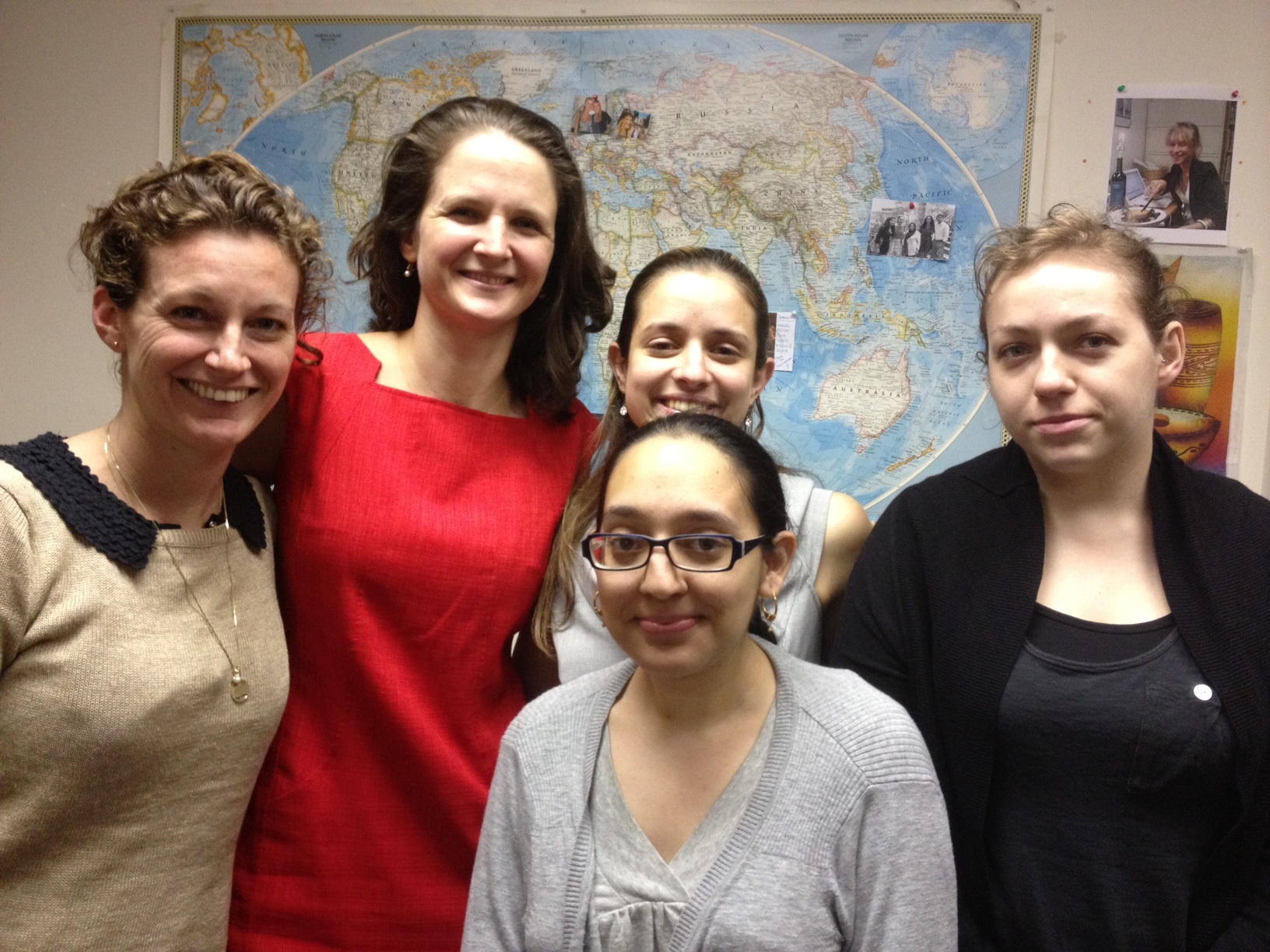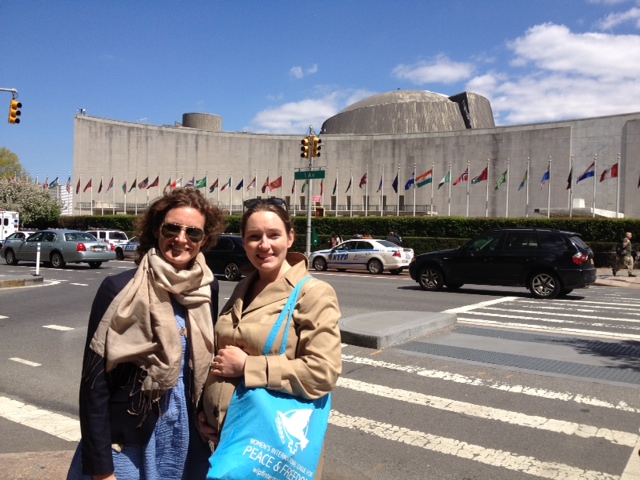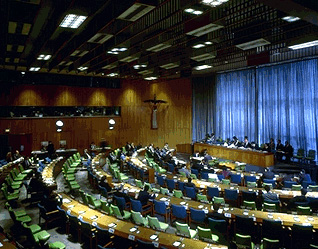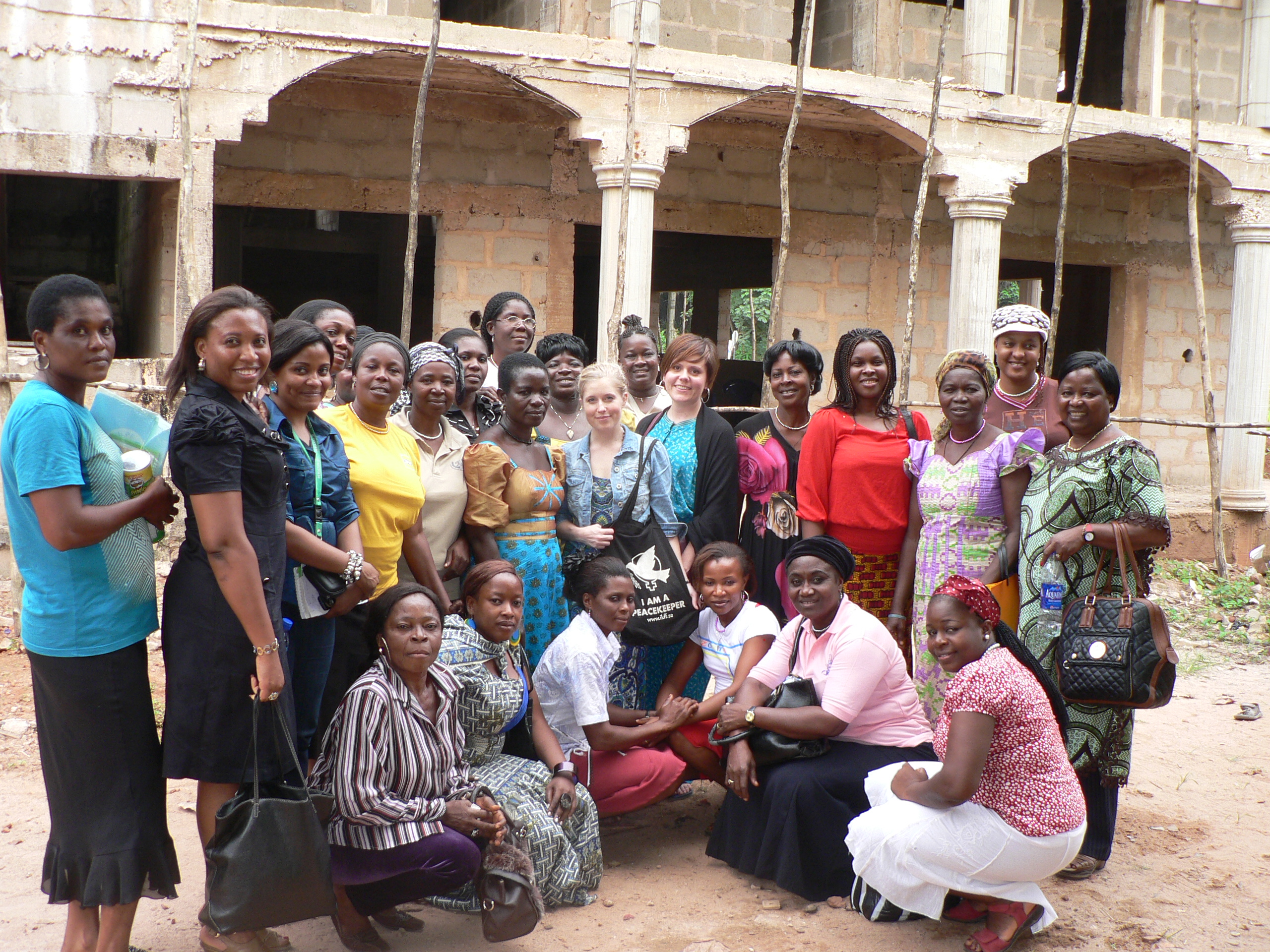New Beginnings: WILPF Colombia Universal Periodic Review-PeaceWomen Enews-May 2013
If you have any difficulty reading this newsletter in HTML, please view it online.
It is spring in New York, and there is new life and new growth everywhere. Here at PeaceWomen, we also have much new life! It is my joy and distinct honor to continue the work of Maria Butler as Programme Consultant in WILPF's PeaceWomen office in New York, while Maria takes time off to welcome a new baby into the world.

On April 28th, WILPF celebrated its 98th anniversary. PeaceWomen celebrates these years of advocacy and is carrying out its work on peace and freedom forward with the next 98 and more in in mind. Our New York based team has been working with the WILPF-Geneva office to strengthen the WILPF Integrated Approach in Action.
Recently, PeaceWomen worked with WILPF's Human Rights program in Geneva and the national sections for the human rights reviews of Colombia and Germany (known as Universal Periodic Reviews (UPRs) of the Human Rights Council). We focused on the links between women, peace and security in the human rights reporting for Colombia and Germany. Read more here>>
The PeaceWomen office has also been working with the Mission of Liechtenstein to continue our Women, Peace, and Security lecture series, which this month features Women's Refugee Commission Executive Director Sarah Costa. On May 22, Costa reflected on opportunities and gaps for displaced women and girls in the relief and recovery pillar of the Women, Peace and Security agenda. For more information, click here. We look forward to continuing this excellent forum which engages a wide variety of policy makers, civil society, academics, and other advocates.
As this is my first PeaceWomen ENews as Editor, I would like to take this opportunity to acknowledge Maria's incredible passion, dedication, and commitment to women, peace and security. Maria's reputation for excellence universally precedes her, and my experience working at PeaceWomen has only underscored this theme. Thank you, Maria, for your inspiration and leadership, from all of us in the PeaceWomen team!
Over the last month, the PeaceWomen team has used this time of transition to reflect on our accomplishments and goals, and develop our strategy for moving forward. It is exciting to be part of a team that has such a rich “her story” and is doing such inspirational work in promoting gender justice, peace, and freedom.
In this edition, we feature a recent news article on the absence of women in Colombian peace talks and the participation of Pakistani women in the country's historic election. We also include an upcoming international conference about moving beyond militarism and war and women-driven peace solutions. Additionally, we include a resource on this month's Monthly Action Points (MAP) on Women, Peace and Security for the UN Security Council and a new report by WILPF's MENA Agenda 1325 on Women, Gender and Gun Violence in the Middle East.
Arria Formula: Implementing the UN Security Council's Women, Peace and Security Agenda
 On May 17th, the Permanent Missions of Australia and Guatemala to the United Nations in cooperation with DPKO organized the Arria Formula meeting. The focus was on the role of gender practitioners in UN Peacekeeping Operations. Panelists included Under-Secretary-General for Peacekeeping Hervé Ladsous; Gaynel Curry, the first women protection adviser (WPA) deployed to the UN Mission in South Sudan (UNMISS); Elsie Effange-Mbella, a senior gender adviser in the UN Stabilization Mission in the DRC (MONUSCO); and Lucien LeClair, a police adviser for the UN Stabilization Mission in Haiti (MINUSTAH). Other member states and civil society were also represented at the meeting. The aim of this Arria Formula was to demonstrate to Council members how Gender Advisers and Women Protection fulfill different roles and how both add value to peacekeeping operations.
On May 17th, the Permanent Missions of Australia and Guatemala to the United Nations in cooperation with DPKO organized the Arria Formula meeting. The focus was on the role of gender practitioners in UN Peacekeeping Operations. Panelists included Under-Secretary-General for Peacekeeping Hervé Ladsous; Gaynel Curry, the first women protection adviser (WPA) deployed to the UN Mission in South Sudan (UNMISS); Elsie Effange-Mbella, a senior gender adviser in the UN Stabilization Mission in the DRC (MONUSCO); and Lucien LeClair, a police adviser for the UN Stabilization Mission in Haiti (MINUSTAH). Other member states and civil society were also represented at the meeting. The aim of this Arria Formula was to demonstrate to Council members how Gender Advisers and Women Protection fulfill different roles and how both add value to peacekeeping operations.
The aim of the event was to assess challenges and provide recommendations on the implementation of Resolution 1325 and subsequent resolutions in the area of gender practitioners in peacekeeping operations. Panelists shared their experiences of working with conflict-related sexual violence in South Sudan, the Democratic Republic of Congo and Haiti. They discussed in particular the importance of building on existing institutional structures in lieu of creating new ones. The necessity of employing Women Protection Advisers is undeniable. Having expertise on sexual violence as well as on country specific settings are crucial to integrate UN responses to sexual violence in conflict. The work of WPAs with governments, prosecutors, and women's civil society organizations has been recognized as a great asset. Main challenges include endless coordination and inflexibility within the UN system as well as lack of resources. Recommendations included: strengthened focus on results, enhancing the flexibility of the UN system and adequate gender training for deployed peacekeeping forces.
The Twinning Effect: WILPF Sweden Trip to Nigeria
This month, WILPF Sweden and WILPF DRC visited sister section, WILPF Nigeria, for twinning exercises among the three sections. The process of twinning, or exchanging learning about each other's similarities and differences across borders, is one way we share share experiences and work to make each one of our sections stronger and more efficient.
This month's twinning exercise builds on a previous meeting in DRC with WILPF Colombia, Costa Rica, and Nigeria, with a particular emphasis by WILPF Sweden on pursuing twinning efforts. During this trip, WILPFers were able to dis cuss ongoing and future collaborations including work on UNSC 1325 National Action Plans, and also discuss the possible expansion of WILPF's work in the African region. Learning from each other's similarities and differences through this regional meeting allowed the different WILPF sections to develop and strengthen each group's individual capacity. Additionally, the sections were also able to contribute to the broader strength of WILPF's message and work on peace and freedom as a whole.
cuss ongoing and future collaborations including work on UNSC 1325 National Action Plans, and also discuss the possible expansion of WILPF's work in the African region. Learning from each other's similarities and differences through this regional meeting allowed the different WILPF sections to develop and strengthen each group's individual capacity. Additionally, the sections were also able to contribute to the broader strength of WILPF's message and work on peace and freedom as a whole.
For the full blog on the WILPF Sweden and WILPF DRC's visit to WILPF Nigeria, please click here>>
The WILPF Integrated Approach in Action
A Universal Periodic Review (UPR) provides one opportunity to evaluate and hold states accountable for their obligations to respect, protect, and fulfill the human rights of all people, and our WILPF team has worked to ensure that this addresses a holistic and inclusive understanding of security for all.  In Colombia, PeaceWomen worked with WILPF-International and WILPF-Colombia to advocate for increased women's participation in peace talks, implementation of Colombian court orders to end impunity for crimes of sexual violence against women, create a UN Security Council Resolution 1325 National Action Plan (NAP) and more. Our recommendations received support from governments of both Ireland and Portugal. In Germany, PeaceWomen worked with WILPF's German Section and WILPF International to highlight gaps in implementation. WILPF regrets that during this pre-session, the implementation of UN Security Council Resolution 1325 on Women, Peace, and Security was not mentioned. Germany has just launched its National Action Plan on the implementation of this resolution, but many loopholes remain in this programme of action.
In Colombia, PeaceWomen worked with WILPF-International and WILPF-Colombia to advocate for increased women's participation in peace talks, implementation of Colombian court orders to end impunity for crimes of sexual violence against women, create a UN Security Council Resolution 1325 National Action Plan (NAP) and more. Our recommendations received support from governments of both Ireland and Portugal. In Germany, PeaceWomen worked with WILPF's German Section and WILPF International to highlight gaps in implementation. WILPF regrets that during this pre-session, the implementation of UN Security Council Resolution 1325 on Women, Peace, and Security was not mentioned. Germany has just launched its National Action Plan on the implementation of this resolution, but many loopholes remain in this programme of action.
Learn more about WILPF's Universal Periodic Review Click Here>>
Women, Peace, Security Panel Series: WPS Panel Series: Relief and Recovery Pillar:
On Thursday, May 23rd, PeaceWomen, along with the Mission of Liechtenstein and Princeton University, hosted the sixth lecture in our Women, Peace, and Security (WPS) lecture series. The lecture, titled Relief and Recovery Pillar: Reflections on Opportunities and Gaps for Displaced Women and Girls, was delivered by Women's Refugee Commission (WRC) executive director, Sarah Costa. The Relief and Recovery Pillar of the WPS agenda focuses on ensuring that relief needs specific to women and girls are met and that special attention is paid to the most vulnerable, including displaced women and girls, survivors of gender based violence, and those with disabilities. It also calls for efforts to support women's active participation and activities in relief and recovery efforts, including providing women with equal access to livelihoods.
Costa focused on the situation of displaced women and girls and discussed areas where there has been progress, as well as highlighting ongoing challenges and possible ways to meet them. She highlighted key areas and issues including: access to reproductive health care; women's economic empowerment; gender-based violence; men and boys; adolescents; needs and capacities of women and girls with disabilities; and displaced women's participation in leadership.
 The lecture stressed that while there have been improvements and progress made in all of these areas, a holistic approach to the WPS agenda that supports and integrates all four pillars is critical for a successful relief and recovery process. Displacement also needs to be prevented, and multisectoral responses are needed to listen to and support displaced women in their leadership and organizing efforts. She asked all stakeholders to work to keep each other accountable and build interlinkages between each other's work to strengthen our efforts and impact in making change.
The lecture stressed that while there have been improvements and progress made in all of these areas, a holistic approach to the WPS agenda that supports and integrates all four pillars is critical for a successful relief and recovery process. Displacement also needs to be prevented, and multisectoral responses are needed to listen to and support displaced women in their leadership and organizing efforts. She asked all stakeholders to work to keep each other accountable and build interlinkages between each other's work to strengthen our efforts and impact in making change.
For full summary click here>>
Find more information on PeaceWomen's Women, Peace, and Security Panel Series, click here>>
To view the flyer click here>>
